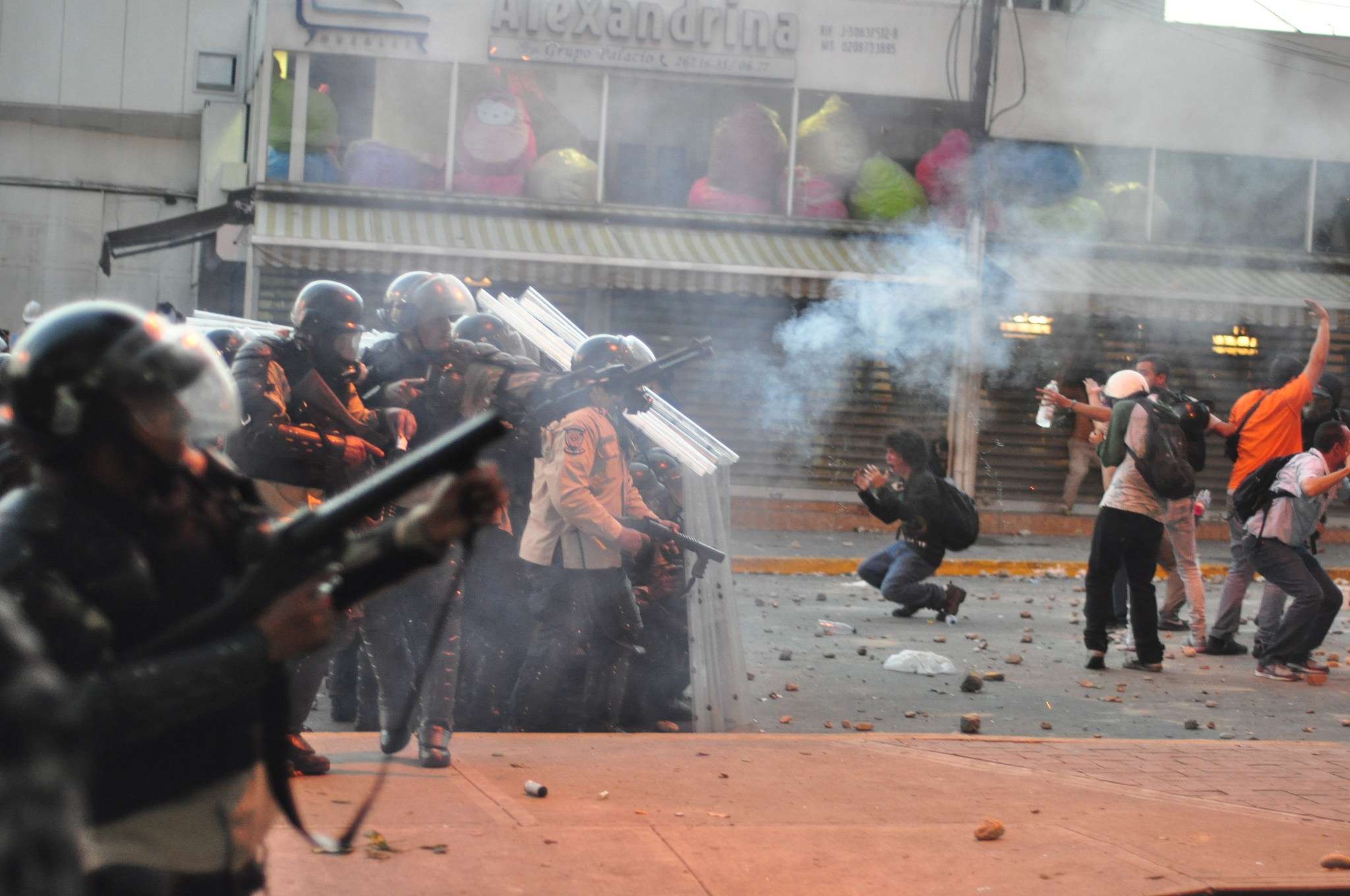Venezuelan Fuel Subsidies Mean Cheap Gas—for Colombians
They should probably enjoy that cheap gas while they can get it.

Plunging oil prices mean cheaper gasoline for people around the world. But Venezuelans have long enjoyed rock-bottom tabs at the pump courtesy of government subsidies meant to keep people happy (and content with the regime). It's a strategy that has sort of worked. Price controls across the country mean shortages of basic goods, including toilet paper. But Venezuela is an oil producer with a government monopoly, so it's pull up to the pump and all you can drink, right?
Well…sort of. But lots of people loving those low gas prices actually live in neighboring countries, because subsidized prices in Venezuela mean a hell of a profitable opportunity for smugglers. Makeshift, a magazine about innovation, followed a smuggler on his regular trip into Colombia.
For a year and a half, Gregorio has smuggled gas through clandestine routes along the inhospitable frontier, marked only by the desolated ranches of indigenous Wayúu people. He can earn up to 20,000 bolívares a week (USD 300 officially speaking, or USD 2,000 on the black market; Venezuela has several exchange rates).
His operation is bolstered by this simple fact: in Venezuela, a liter of gasoline officially costs a cent and a half, thanks to heavy government subsidies that make it the cheapest gas in the world. But at black market prices, a liter costs next to nothing: a tenth of a cent. In neighboring Colombia, by contrast, gasoline runs USD 1.20 per liter.
Even with costs inflated by the price of bribing troops and guerrillas along the border, that means a nice living for enterprising black market entrepreneurs, and a price for gas that's a third to a half of the market rate for Colombians.
About one-fifth of Venezuela's fuel exports are believed to leave the country this way.
Gasoline isn't the only good price controlled and subsidized to the benefit of black market buyers across the border. Last summer, the Miami Herald reported that "from 40 to 50 percent of all goods are spirited into neighboring Colombia where they can fetch five times more money."
At these prices, why wouldn't your average Colombian want Venezuela's President Nicolas Maduro, Hugo Chavez's thuggier and crazier successor, to stay in office indefinitely (especially since they don't have to live with any of his other policies)?
But the Maduro regime buys good will with oil money, and the price of oil is plummeting. Those gifts to the neighbors are getting harder to sustain as the government goes broke, with the smart money betting it will default on its debt. Venezuelan economist Angel Garcia Banchs predicts. "chaos that will probably lead to barbarity and people looting."
Colombians should probably enjoy that cheap gas while they can get it.
Combustible Contraband from Makeshift on Vimeo.


Show Comments (10)